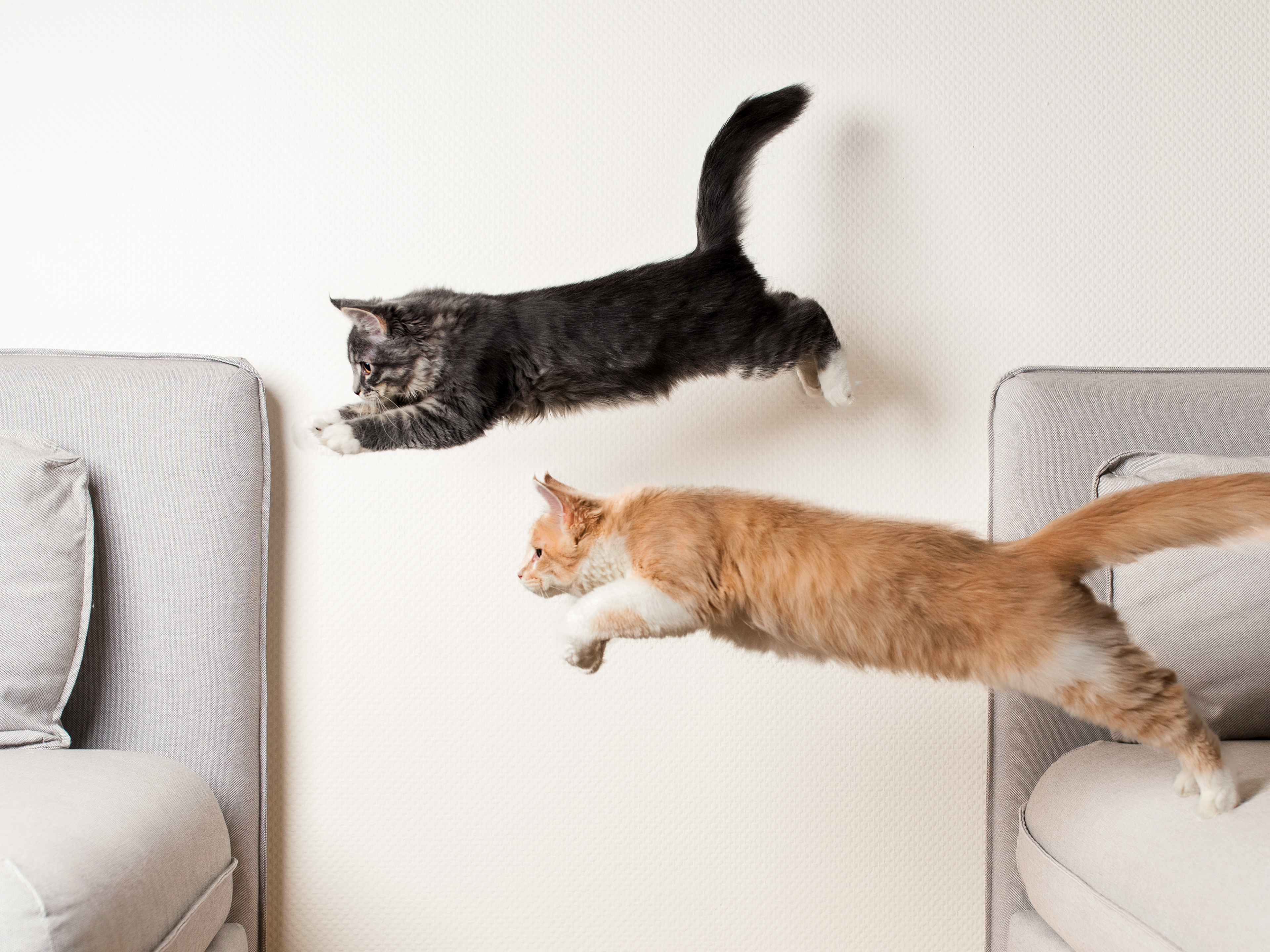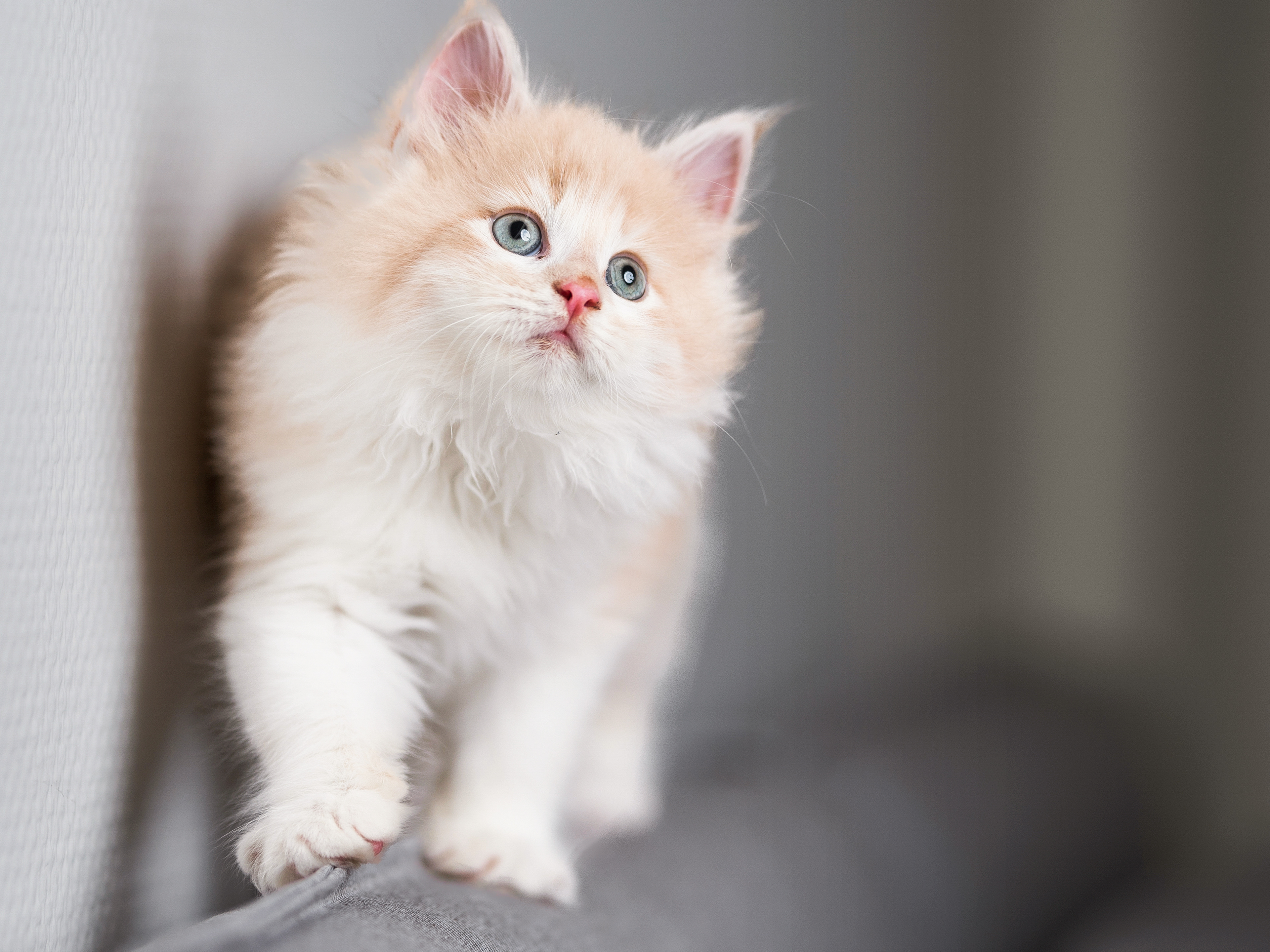Understanding your kitten's behaviour

Your kitten's body language
Your kitten will give you a number of behavioural cues using their body language to indicate their mood. By understanding each change in behaviour, you can learn to provide your kitten with what they need, whether it's space, playtime or food.
Guiding behaviours
A kitten's behaviour is highly influenced by others. In their early weeks and months, your kitten will have adopted a number of behaviours from their litter-mates and mother. When they arrive at your home, it's up to you to reinforce the positive behaviours they exhibit and minimise any negative actions.

What causes unwanted behaviour in kittens?
Cats are creatures of habit, and particularly appreciate an established routine. Behaviours such as scratching furniture, biting or refusal to use the litter box can often be signs that your kitten is unsettled or disrupted. As well as continued positive reinforcement, if you notice an increase in destructive behaviour, think about whether there could be a hidden cause.
Your kitten's grooming habits
Cats are well known for their cleanliness and kittens are no different. Self-grooming isn't just about removing loose hairs and dirt, however. This action also serves an emotional function for your pet.

The evolution of a cat's behaviour
The domestic cat is one of the most recently evolved feline species. In contrast with some other domestic species, such as dogs or bovines, cats have maintained a high degree of independence in relation to humans. The relationship between cats and their owners is therefore mostly based on mutual benefits.
Despite domestication and selection to produce unique characteristics in different breeds, most of our feline companions have retained some attributes, both physical and behavioural, of their wild ancestors. They remain almost identical in many respects to the African Wildcat, and also to the other wild cats, large or small.
Kitten behaviour explained
In early months, your kitten could be scratching to remove the outer shell of their nails and allow growth. Scratching is also a natural way for your kitten to mark their territory. To avoid them scratching your furniture, invest in suitable alternatives such as a scratching post or mat. Because cats scratch to mark their territory, it is important to put their scratching posts or pads in areas they commonly scratch.
A common mistake pet owners make is engaging their kitten in play with their hands. Doing so can unknowingly reinforce the idea that your kitten is allowed to nip, bite or scratch your hand. The best way to deter this behaviour is to offer your kitten alternative toys when playing.
Another cause for biting could be a disruption to their established routine. Changing their sleeping or eating spot, introducing new additions to the family, or moving house could all contribute to anxiety in your kitten. If not handled carefully, these changes could result in biting behaviour.
There could be a number of reasons that your kitten isn't using their litter tray. First, consider whether the tray is in a suitable position, far enough away from their food bowls and in an easily accessible but discreet location where they won't be disturbed. If your kitten is sharing with another cat, this could be a cause of stress or intimidation and result in your kitten not using the tray. It's recommended to have at least one tray per cat in the home, plus one spare.
As with biting, your kitten could be avoiding the litter tray due to anxiety or disruption to their routine. Consider whether your kitten has had a change in their routine or social situation recently.
If you have eliminated all of these possible causes, it could be a sign of illness. If you are ever unsure about your kitten's health or behaviour it's important to consult your vet.
Vocalisation from your kitten could have a number of different meanings, depending on their context, tone, or length. A meow could indicate that your kitten is hungry, would like to play, or act as a simple greeting. Understanding your kitten's vocalisations and body language will offer you a great foundation for an ongoing, fulfilling relationship. Find out more about recognising your kitten's social cues above.
Kitten grooming
Find out how you can support your kitten's grooming and hygiene needs, from brushing their coat and giving them a bath, to caring for their nails and teeth.
Your kitten's health
Paying close attention to your kitten's behaviour and identifying any abnormalities can be a great indication of changes in their health. Find out more about how to keep your kitten healthy, and when they might need to visit the vet.